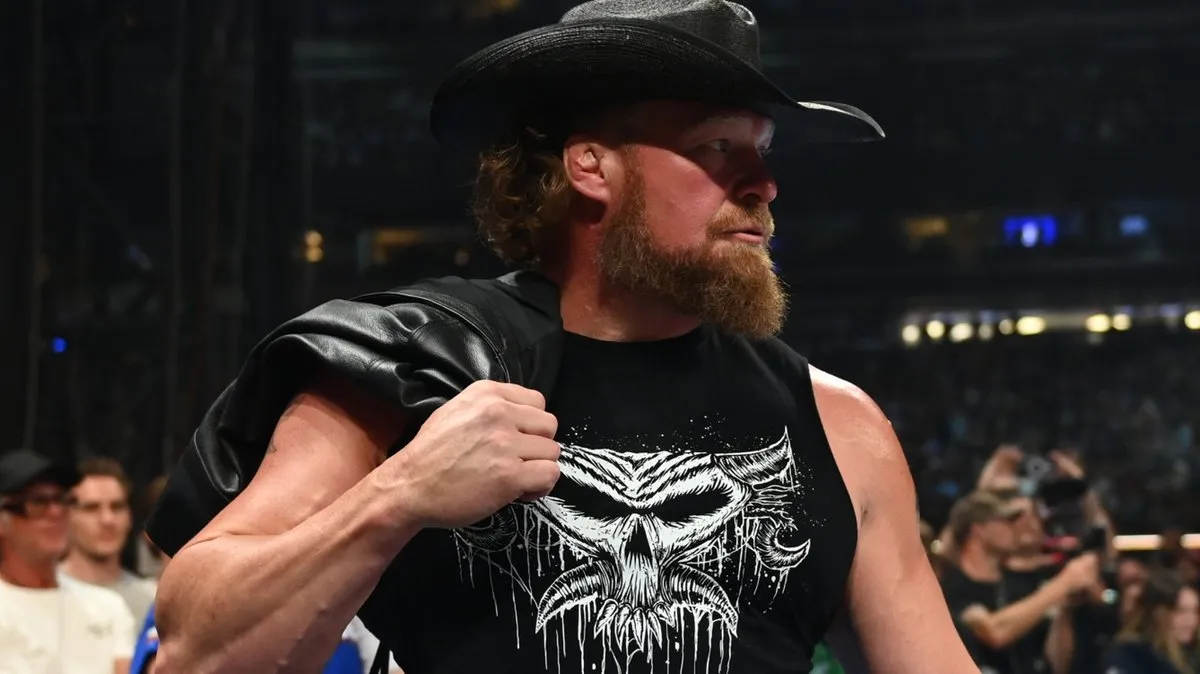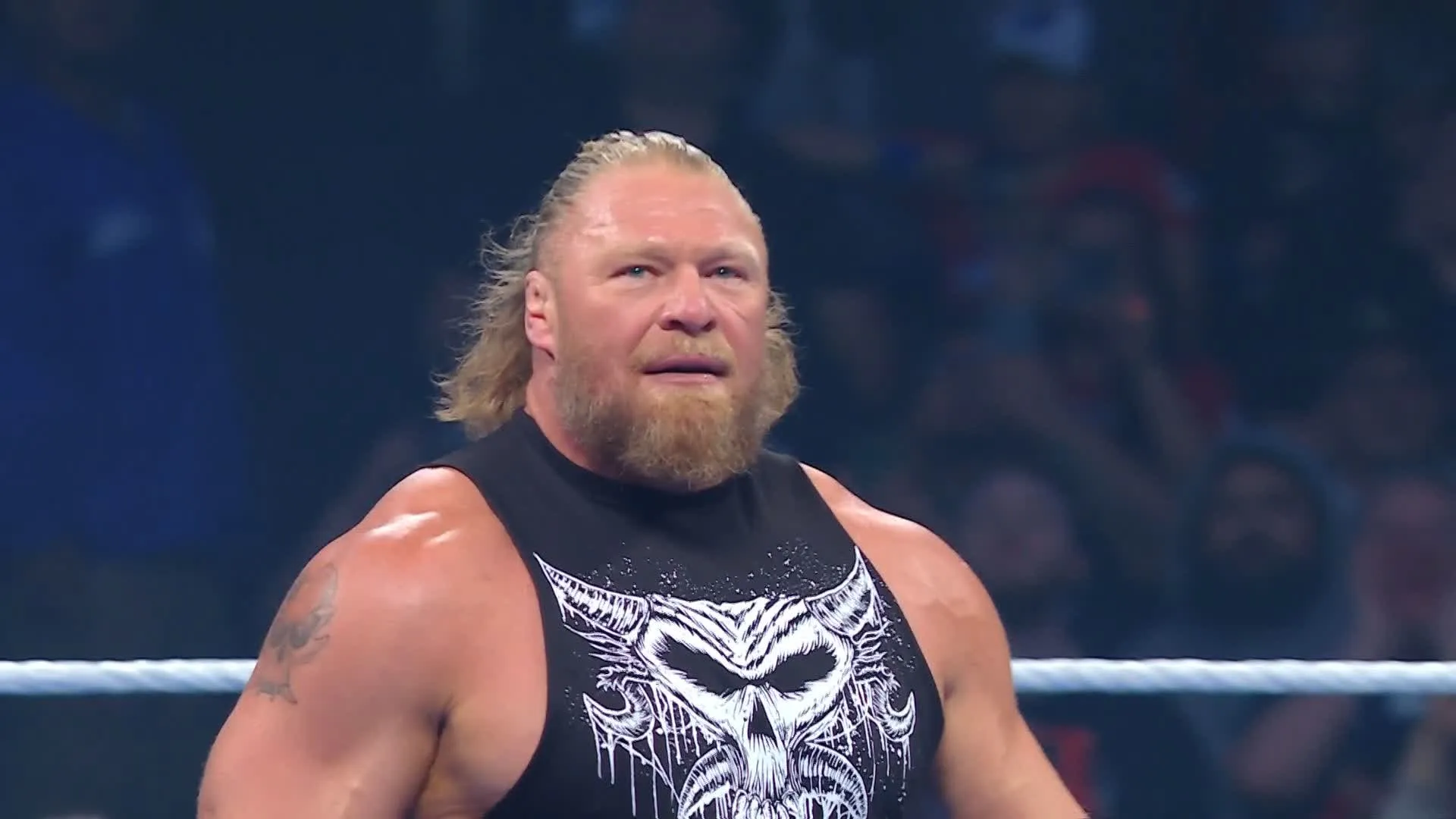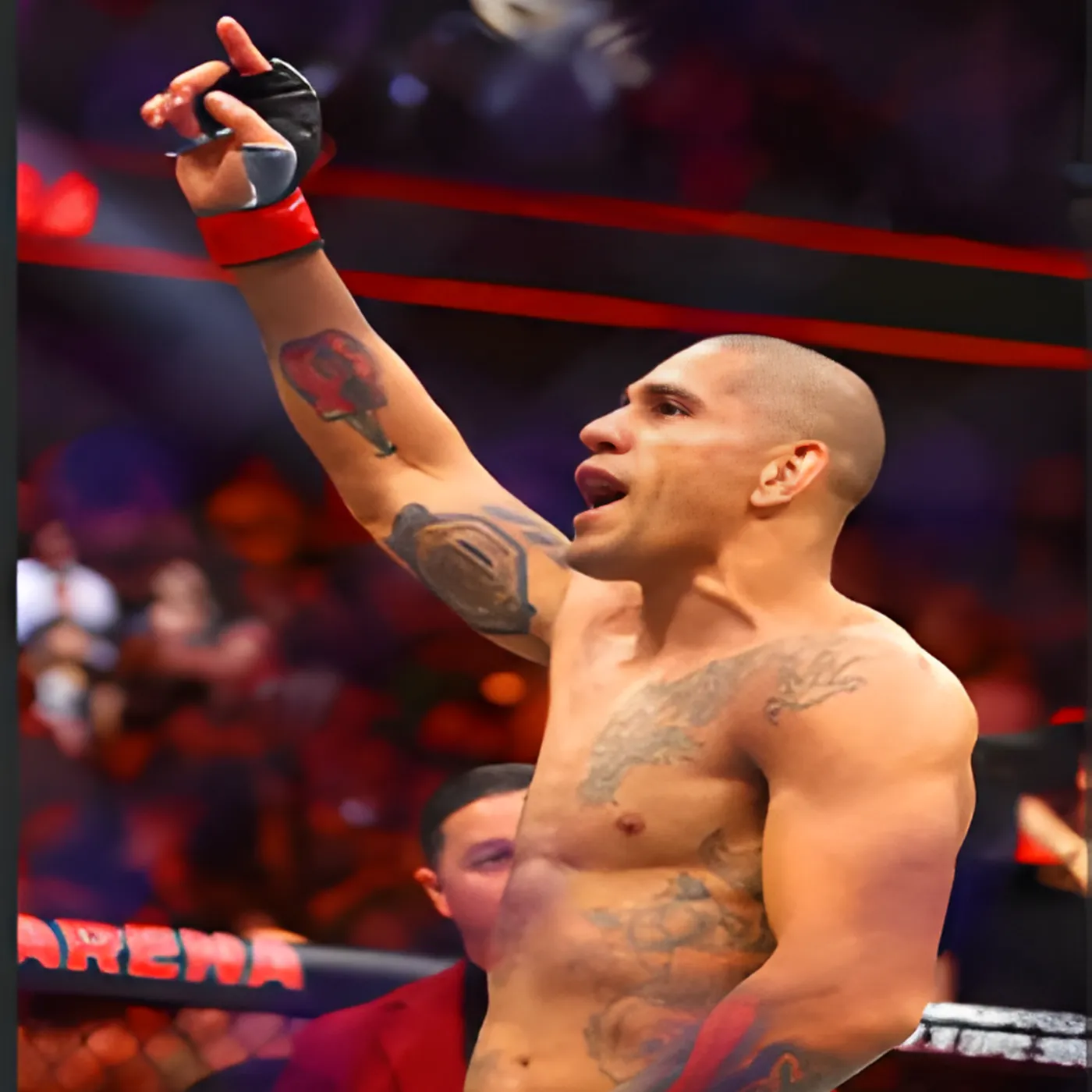

Why Brock Lesnar Feels Larger Than Life — And Why Wrestling May Never See His Kind Again
The Aura of a True Beast Incarnate
When discussing professional wrestling’s most intimidating and captivating figures, Brock Lesnar often rises above the rest. His presence is so commanding that he seems to transcend the typical boundaries of sports entertainment. From the moment he storms into an arena, the atmosphere changes—fans feel an undeniable mixture of awe and fear. This is what makes him larger than life. Many wrestlers can play the role of a monster or an underdog, but very few can make an audience genuinely believe that they are witnessing something extraordinary. With Lesnar, belief comes naturally.

The foundation of his aura lies in authenticity. Brock Lesnar is not simply portraying a powerhouse; he is one. His real-life background as an NCAA Division I Heavyweight Wrestling Champion, his success in UFC, and his sheer physical dominance give his WWE persona credibility unmatched by almost anyone else. When Lesnar delivers a German Suplex or hoists someone into an F-5, it is not merely theater—it’s a reminder that he has the genuine capacity to dismantle opponents in real combat. That duality between sports and spectacle makes him uniquely captivating.
A Career Defined by Dominance and Authenticity
The career of Brock Lesnar is unusual not only because of his achievements but also because of how he has achieved them. In 2002, when Lesnar made his main roster debut in WWE, he was instantly pushed as a destructive force, defeating The Hardy Boyz, The Rock, and even the legendary Undertaker within months. Unlike many who take years to climb the ladder, Lesnar’s ascent was meteoric, and it felt entirely believable. His body, speed, and agility defied logic, and fans recognized that they were witnessing something rare.
What makes Lesnar stand out is that his dominance never felt forced. WWE has often created unstoppable characters, but the difference is that Brock Lesnar’s legitimacy made the push organic. Fans didn’t have to suspend disbelief. They knew that this man could likely dominate anyone in real life. His brief departure from wrestling to pursue an NFL career and later to conquer the UFC Heavyweight Championship only reinforced that authenticity. When Lesnar returned to WWE in 2012, he wasn’t just another performer; he was a mainstream sports star with victories in the Octagon. That crossover success is one of the reasons wrestling may never see another like him.
The Perfect Balance of Myth and Reality
Another reason Brock Lesnar feels larger than life is his mastery of balancing reality and mythology. Unlike other wrestlers who constantly appear on weekly programming, Lesnar’s presence is scarce, almost sacred. WWE carefully crafted him as a special attraction. He did not wrestle every week, and his promos were often delivered through his advocate, Paul Heyman, which preserved his mystique. The less fans saw him, the more they anticipated his return.
This rarity elevated him into an event-level star. Whenever Brock Lesnar’s music hit, it felt like a disruption of the ordinary. The sound of the guitar riff triggered immediate excitement because audiences knew something chaotic was about to unfold. That aura is similar to how boxing fans felt when Mike Tyson was active in his prime—brief appearances, devastating results, and unforgettable moments. Wrestling thrives on mythmaking, and Lesnar’s myth is that he is not just part of the roster—he is something beyond it.
The Evolution of The Beast
Across two decades, Brock Lesnar evolved from a young prodigy into an industry-defining phenomenon. Early on, fans admired his athleticism—his shooting star press, his explosive speed, and his pure wrestling foundation. Later, his character shifted into a merciless destroyer, a man who could dismantle beloved heroes like John Cena in lopsided matches. That infamous 2014 SummerSlam encounter, where Lesnar suplexed Cena repeatedly in one of the most one-sided main events in history, cemented his legacy as the ultimate final boss of WWE.
Interestingly, Lesnar’s evolution has not been linear. He has reinvented himself multiple times, from the silent “Next Big Thing” to the cocky UFC crossover star, and even the more relaxed “Cowboy Brock” that fans came to enjoy in recent years. Each transformation highlighted a different facet of his personality while keeping his core identity intact: a man whose presence alone guarantees spectacle. Few wrestlers can constantly reinvent themselves without losing credibility, but Lesnar managed to remain relevant and captivating no matter the era.
Why Wrestling May Never See His Kind Again
The uniqueness of Brock Lesnar lies not just in his achievements but in the circumstances that created him. Modern wrestling is unlikely to produce another figure like him for several reasons.
Firstly, the current developmental system prioritizes charisma and marketability as much as physical dominance. While this ensures a broad range of characters, it rarely yields someone with Lesnar’s authentic athletic dominance. His NCAA wrestling championship background and UFC triumphs gave him legitimacy that cannot be manufactured in a performance center.
Secondly, wrestling audiences today are more self-aware. Fans understand the scripted nature of the business more than ever, and it becomes increasingly difficult to present a performer as a true monster without skepticism. Yet with Brock Lesnar, skepticism vanishes because of his real-life résumé. That rare combination of credibility and entertainment may not be replicable in the current or future landscape.
Thirdly, WWE’s business model has shifted. Stars are now expected to engage heavily in media, social platforms, and brand representation. Lesnar is notorious for avoiding the spotlight outside of his matches, rarely granting interviews, and living a private life away from the cameras. His avoidance of overexposure is a key part of his mystique. In today’s hyper-connected world, the ability to maintain that level of mystery is almost impossible.
The Last True Attraction
Calling Brock Lesnar the last of his kind is not exaggeration. Wrestling may produce future megastars, but the elements that make Lesnar feel so monumental are unlikely to align again. His combination of freakish genetics, authentic combat background, limited appearances, and the marketing genius of WWE in presenting him as a once-in-a-generation monster cannot easily be duplicated.
Even his flaws, such as limited promo ability or reluctance to commit to a full-time schedule, turned into strengths. WWE used Paul Heyman to amplify his voice and presented Lesnar’s part-time status as a privilege—fans had to wait for him, which made his appearances more valuable. His career is proof that wrestling does not always follow traditional rules of storytelling; sometimes, it bends around an individual so extraordinary that he dictates the narrative himself.
Legacy Beyond Championships
When considering Lesnar’s legacy, it is tempting to count his championships and accolades: multiple-time WWE Champion, Universal Champion, and UFC Heavyweight Champion. Yet his true legacy lies in the moments and emotions he created. From ending The Undertaker’s WrestleMania streak, to dismantling icons like Cena, Goldberg, and Randy Orton, Lesnar gave fans shocks, controversies, and unforgettable memories.
His matches were not just contests—they were events. Even when fans criticized his dominance or questioned his part-time schedule, they tuned in because they knew that Brock Lesnar represented unpredictability. Would he squash a hero in minutes? Would he suffer a rare defeat? That tension made every appearance must-see television.

Conclusion: A Living Legend of Wrestling
The story of Brock Lesnar is one of power, authenticity, and myth. He is larger than life not because of carefully scripted promos or flashy gimmicks, but because his reality is as compelling as his character. Wrestling may never see another star who bridges the gap between legitimate sports dominance and sports entertainment spectacle so seamlessly.
In a world where most wrestlers strive for constant exposure, Lesnar thrives in scarcity. In an industry where many characters feel manufactured, he radiates authenticity. And in a business that often celebrates endurance, he represents explosive impact.
That is why Brock Lesnar feels larger than life, and why future generations may admire him as the last true attraction—a reminder that wrestling, at its very best, is not just about stories in the ring, but about the mythical figures who make us believe the impossible.


















